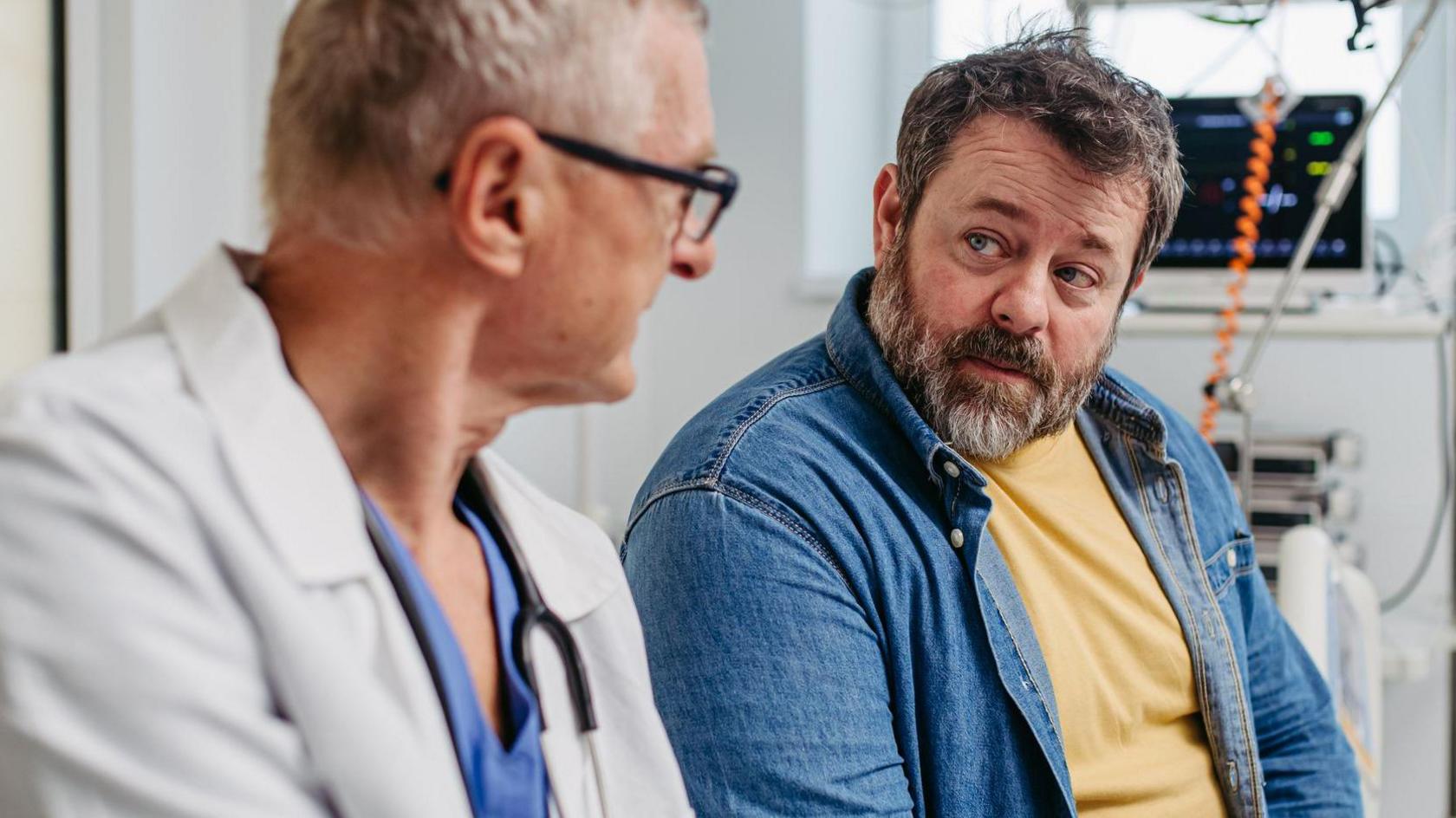Prostate cancer survivor welcomes new screenings
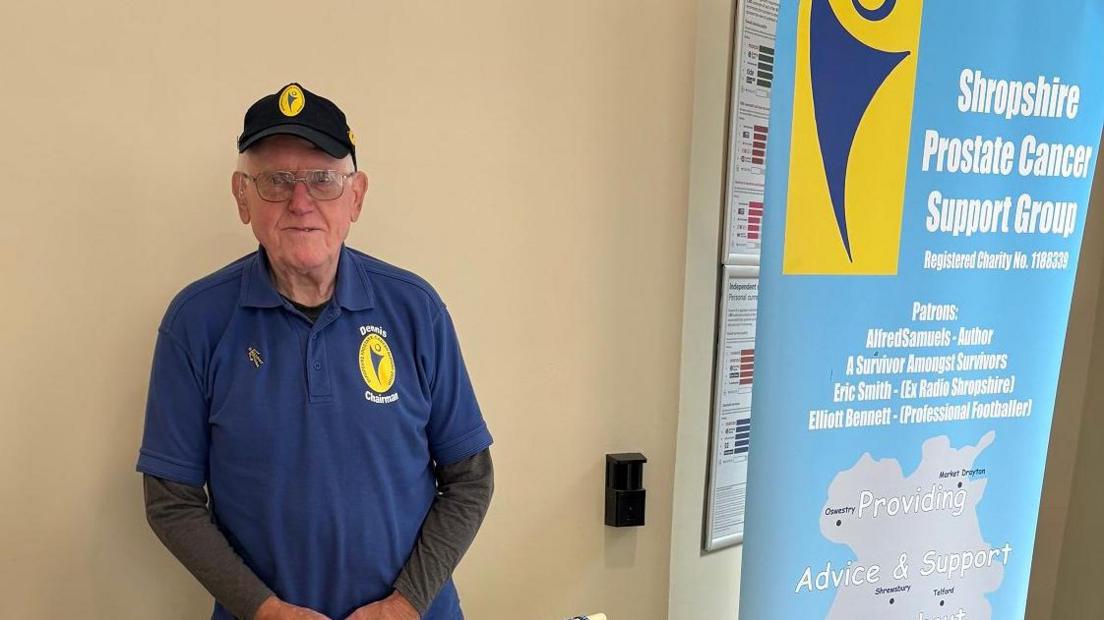
Dennis Briggs said more men needed to get tested so the cancer could be caught early
- Published
A prostate cancer survivor has said that a new screening trial for the disease is the way forward.
The trial will look at how rapid MRI scans of the prostate could be combined with prostate-specific antigen (PSA) blood tests in order to improve the accuracy of cancer diagnosis.
Currently, men over 50 can request a PSA test, which looks for abnormally high levels of protein in the blood, but this is unreliable, picking up many prostate cancers that would never need treatment, and missing others that do.
"We need something that's right down to the point and can say you've got prostate cancer, it doesn't need treating or it does need treating," said Dennis Briggs, from Shropshire.
The trial will recruit men aged 50-74, with a lower age limit of 45 for black men, who have twice the risk of developing and dying from prostate cancer compared with white men.
It will also use spit tests, which extract DNA from saliva, to see if this is more accurate than PSA readings.
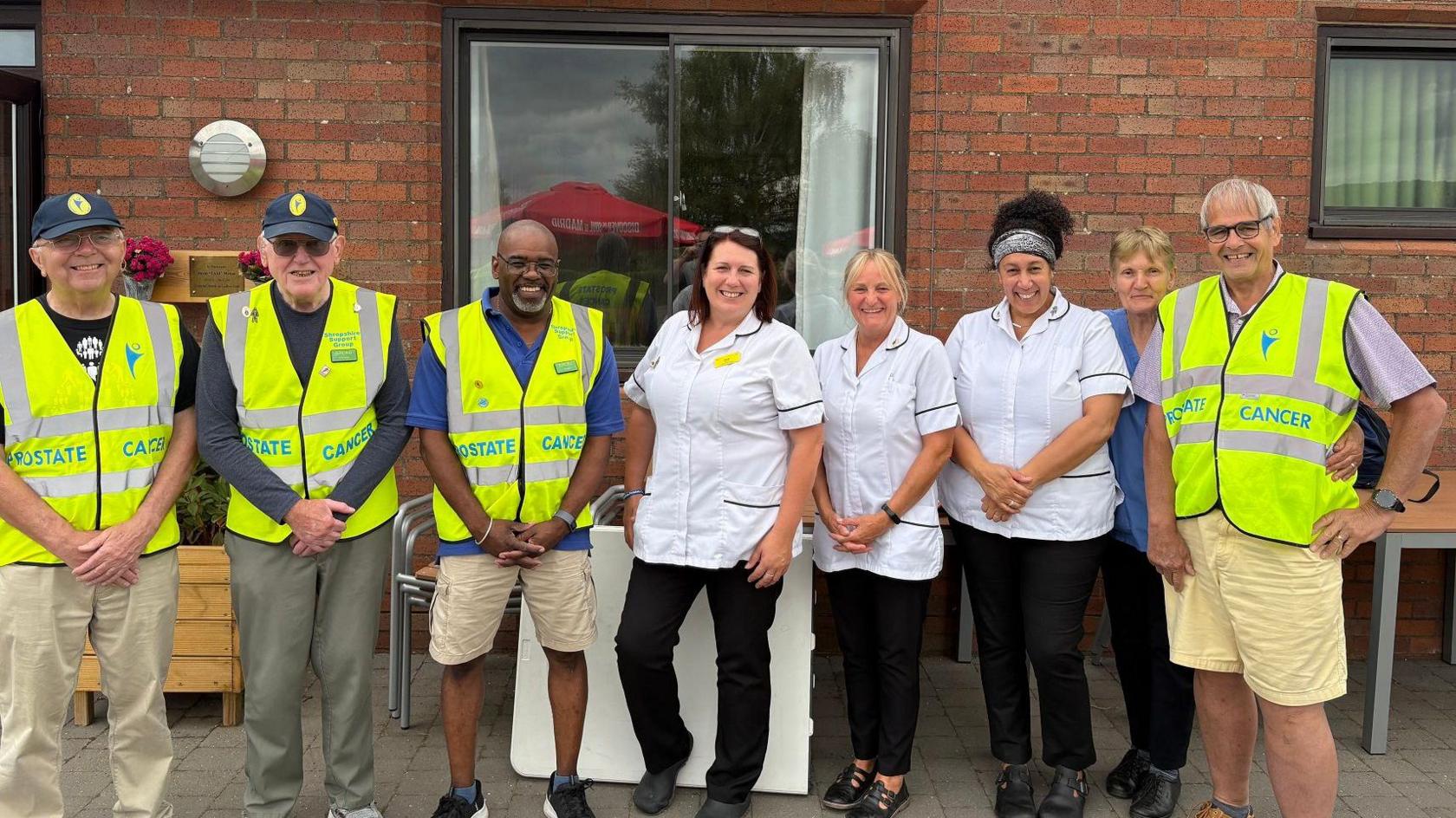
Dennis (second left) helps run Shropshire Prostate Cancer Support group
Mr Briggs was diagnosed with the disease after an operation to remove a blockage in his urethra.
"Within six weeks I was in hospital, had it done, and was out again," he said.
"As soon as they find out you've got it, the pathway is very very quick, but it's getting people to get tested to find out that they've got it.
"When a lot of men produce themselves at the doctors with prostate cancer, it's usually too late, it needs to be caught early so it can be treated earlier."
Mr Briggs also helps to run the Shropshire Prostate Cancer Support Group.
"In the last six years we have offered blood tests, we do five a year, and this year we've tested over a thousand men."
He welcomed the trial, saying: "If we can find a way of getting men annually checked after a certain age, it would be a brilliant way to go."
Get in touch
Tell us which stories we should cover in Shropshire
Follow BBC Shropshire on BBC Sounds, Facebook, external, X, external and Instagram, external.
Related topics
- Published18 hours ago
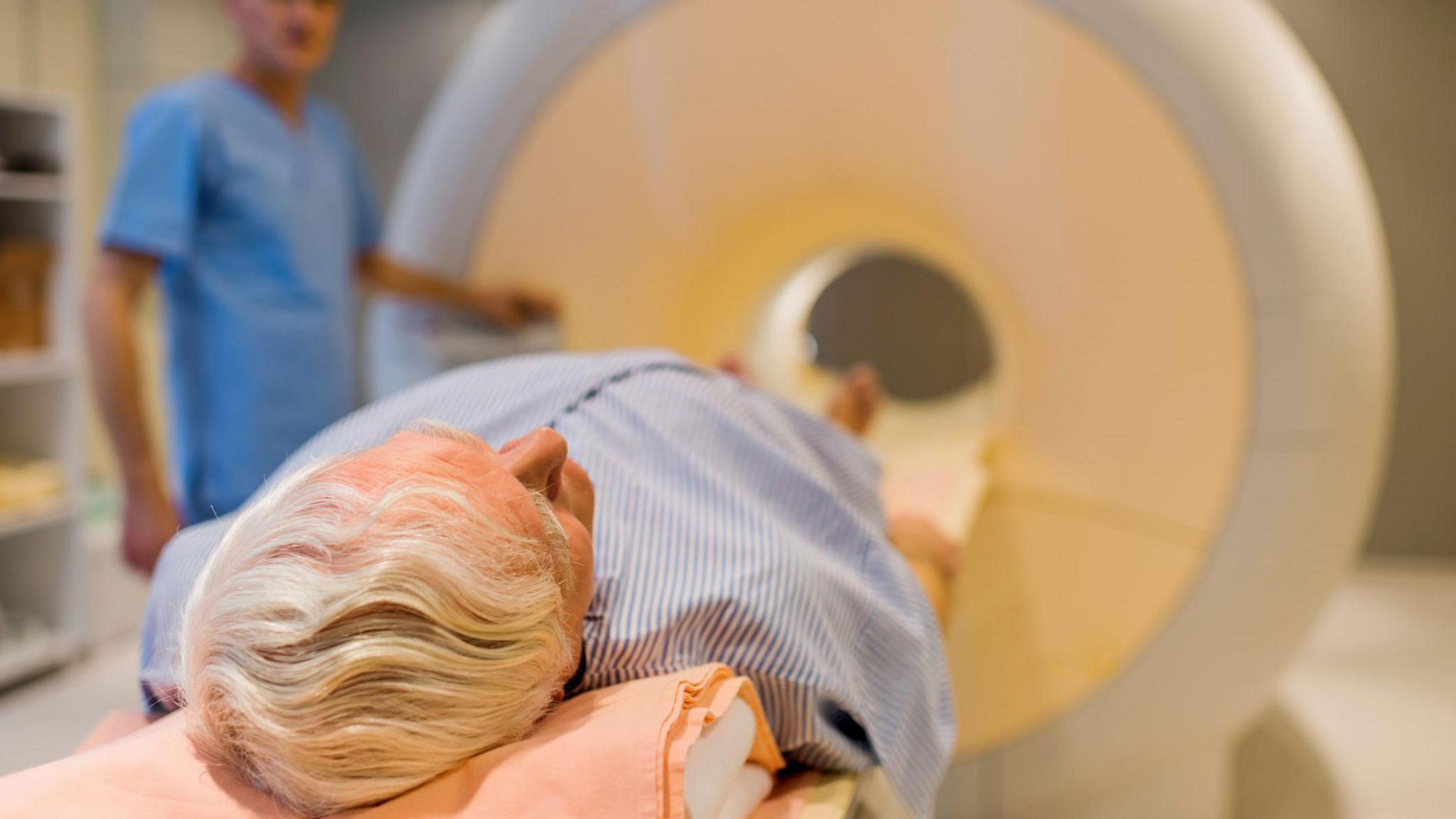
- Published28 October
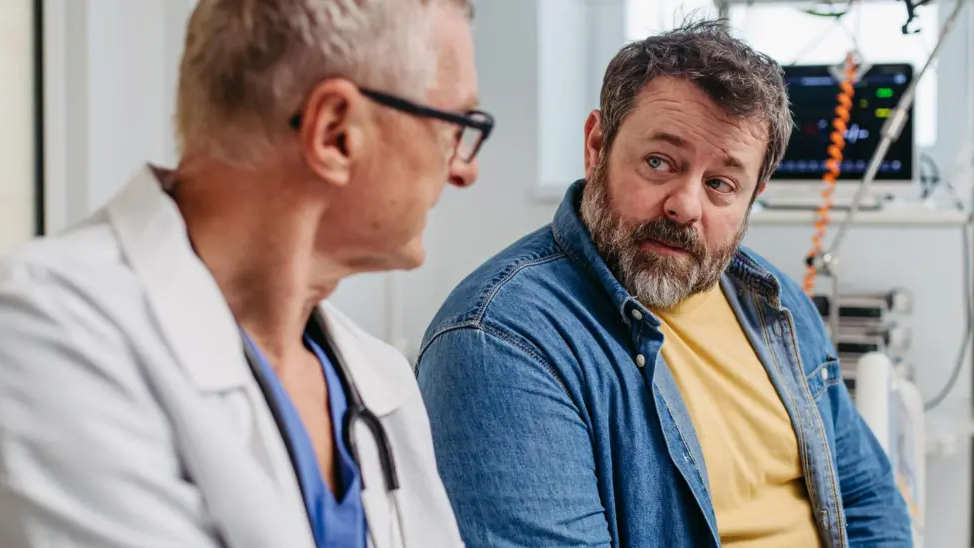
- Published14 October
